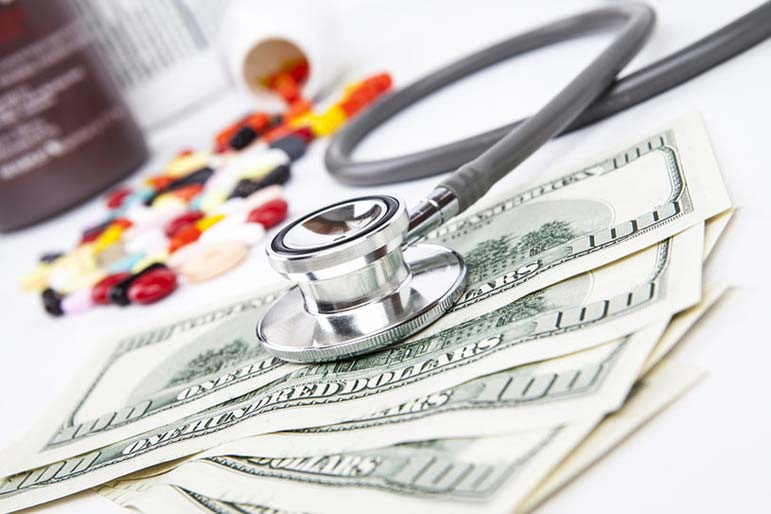
President Donald J. Trump is right. Too many pharmaceuticals are too damn high, especially compared to the flea-market prices that foreign patients pay for the same drugs.
The Pacific Research Institute's Dr. Wayne Winegarden estimated last month that a 30-day supply of the weight-loss drug Ozempic costs $418.98 in America. But that's a mere $95.30 in the UK — a 77.25% discount. Jardiance, for cardiovascular disease, runs $256.66 per month here. In Canada: $57.65. That's 77.5% off.
Trump's new Most Favored Nation policy aims to bring US drug bills closer to those overseas. Simply put, MFN demands that these manufacturers sell "all brand products" at their lowest prices among major OECD countries.
This "bargain" would karate chop the revenues of American drug companies. They typically spend $2.9 billion to bring each new drug to market. These firms also try to recover losses from countless once-promising therapies that die anonymously in test tubes. MFN is like telling Hewlett-Packard that its $1,000 laptops must sell for just $200 — MS-13's price for such a freshly stolen computer.
Great Britain's National Health Service, France's l'Assurance Maladie, Germany's Gesetzliche Krankenversicherung, and similar socialized-medical systems are better-dressed, less-tattooed versions of this notorious Salvadoran prison gang.
Rather than pay what Pfizer or Gilead ask for their drugs, bureaucrats at these government-run medical monopolies dictate take-it-or-leave-it prices. To avoid total exclusion from these markets, US laboratories say: "Thank you, sir. I'll have another!" These labs then charge US patients and insurers higher prices to compensate for the artificially low prices extorted by these rip-off countries.
Lower revenues — due to foreign drug thieves and MFN's attempt to undo their economic distortions — will discourage US pharmaceutical companies from creating costly new treatments and cures.
In 2018, per the National Academies Press, "Two-thirds of new drugs in the past decade and more than 80% of the drugs in the world's biopharmaceutical pipeline today emerge from the United States." Tragically, Earth's entitled free-riders will not step up if the American miracle-drug machine sputters, wheezes, and dies.
For starters, Trump should call British Prime Minister Kier Starmer, Canadian PM Mark Carney, and French President Emanuel Macron. He should tell them: "Stop robbing American drug companies. US drugs sell for US prices!"
What should be done here at home, to make drug prices more reasonable?
Aside from the teachers' unions, Pharmacy Benefit Managers are the biggest parasites in America. Leeches feasting on lampreys have nothing on these value-destroying middlemen.
Imagine ordering a New York Strip at your favorite steak house. Suddenly, a Meat Benefits Manager steps forth and plants himself among you, your waiter, the chef, and the butcher. After mind-numbing discussions and a tornado of paperwork, your $58 steak now costs $100. And the MBM pockets the difference, via the higher tab that he finagled. Tomorrow night, you think, "Why not Campbell's Soup?"
Invading the personal space of patients, employers, insurers, and druggists, America's PBM cabal swiped $557.5 billion in 2024, IBISWorld estimates. That might be admirable if PBM companies merely offered advice or just looked handsome. Instead, they collect a share of the drug prices that they oversee. Naturally, they hike these expenses, so they can drain ever-more blood from their increasingly anemic hosts.
"PBM operations are opaque, their revenues streams complex and perhaps most importantly, their operations obscure the actual market price for medicines," PRI's Winegarden wrote May 22. "Due to these flaws, prices for innovative medicines in the U.S. are inflated."
President Trump could help pry PBMs' fangs out of the drug industry's collective neck by insisting on pharmaceutical price transparency. Citing a September 2023 Nephron Research study, Winegarden reported that "$0.42 of every $1 spent on brand medicines for commercially insured patients in the US goes straight to PBMs." Consumers should see drugstore receipts along these lines: "Drug X: $58 + PBM fees: $42 = $100."
Such transparency would let the sunshine disinfect the PBMs right out of drug prices.
Columnists
- Jay Ambrose
- Stephen Carter
- Alicia Colon
- Greg Crosby
- Christine Flowers
- Argus Hamilton
- Victor Davis Hanson
- Laura Hollis
- Jeff Jacoby
- Rich Lowry
- Dick Morris
- Judge A. Napolitano
- Dennis Prager
- Michael Reagan
- Dave Ross
- David Shribman
- Lenore Skenazy
- Thomas Sowell
- Mark Steyn
- Cal Thomas
- Bob Tyrrell
- Walter Williams
- Byron York
- Cathy Young
Toons
- Robert Arial
- Pat Bagley
- Lisa Benson
- Chip Bok
- Patrick Chappatte
- John Cole
- J. D. Crowe
- John Darkow
- Matt Davies
- Bob Englehart
- Brian Duffy
- Everything's Relative
- David Fitzsimmons
- Jake Fuller
- Bob Gorrel
- Walt Handelsman
- Joe Heller
- David Hitch
- Jerry Holbert
- Taylor Jones
- Steve Kelley
- Jeff Koterba
- Jimmy Margulies
- RJ Matson
- Gary McCoy
- Rick McKee
- Paresh Nath
- Jack Ohman
- Jeff Parker
- Milt Priggee
- Michael Ramirez
- Steve Sack
- Kevin Siers
- Jeff Stahler
- Scott Stantis
- Danna Summers
- Gary Varvel
- Kirk Walters
- Christopher Weyant
- Larry Wright
- Adam Zyglis
© 2025 Deroy Murdock


 Contact The Editor
Contact The Editor
 Articles By This Author
Articles By This Author